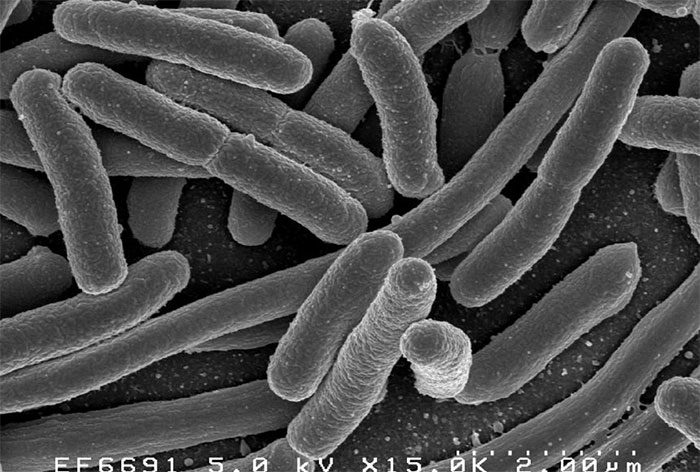Bacteria introduced to microgravity environments can spread significantly faster than non-mutated bacteria.
Microgravity environments, or weightlessness, have long been shrouded in mysteries that humanity has yet to uncover and explain.

Microscopic image of E. coli bacteria. (Photo: National Geographic).
Even what is considered a truth on Earth may behave completely differently in the weightless environment of space.
For instance, some types of bacteria can mutate to reproduce faster when exposed to microgravity.
Researchers from the University of Houston (USA) found that Escherichia coli (E. coli) cells, after undergoing 1,000 generations of development in simulated microgravity conditions, showed a significantly faster spreading capability compared to non-mutated bacteria.
They also exhibited at least 16 different gene mutations during this process, although it remains unclear how these mutations affect their growth rate.
Interestingly, even when bacteria were removed from microgravity conditions for up to 30 generations before testing, as much as 72% of their growth characteristics were retained. This suggests that some changes induced by space travel may have permanent and irreversible consequences.
“We are witnessing surprising gene changes, and they are permanent,” said George Fox, a project researcher. “We need to understand exactly what is happening.”
The researchers are currently working on ways to protect astronauts in space from bacterial outbreaks, as well as minimizing damage if a mutated strain of bacteria finds its way back to Earth.
According to the research team, the unique development process of these bacteria could have certain impacts if solutions are not found soon.
In fact, astronauts aboard the International Space Station (ISS) have long faced dense biofilms of bacteria that appear on their equipment and bodies every day.
If, by some means, these mutated bacteria return to Earth, they could create new mutations, leading to difficulties in treatment with conventional antibiotics.


















































